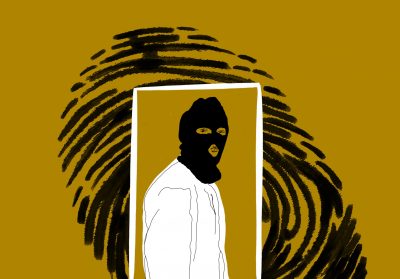There was an enormous amount of news coverage surrounding the Gaby Petito case — the horrific murder of a young white woman after a road trip with her fiancé this past August. This excess of coverage correlates with the public’s obsession with true crime, which has reached new heights in recent years.
Crime reporting in American culture can be traced back to execution sermons of the 1600s. Some scholars have hypothesized that the societal function of this kind of crime reporting — more than a mere objective retelling of the incident — was to provide comfort to the community in which the crime occurred by having a figure of authority, such as a journalist, straightforwardly recount the narrative.

Emily Dworkin, a trauma researcher at the University of Washington School of Medicine Department of Psychiatry and Behavioral Sciences, posits that true crime today — which spans news, podcasts and documentaries — offers a kind of catharsis for consumers of the genre. True crime offers a way for consumers to experience difficult emotions at a distance.
But how do these theories figure into the most recent iterations of true crime? In recent years, a new genre, “comedy true crime” podcasts, mainly hosted by women, has emerged. A recent article detailing the best true crime podcasts out there summarized one podcast from the genre as “Smart, funny women getting drunk and talking true crime.”
Many attribute the prominence of female fans of true crime to the fact that women are often the target of brutal crimes and thus share a morbid fascination with these crimes as they fear these incidents may happen to them.
In each of these interpretations, consuming true crime functions as a form of comfort — either in dispelling negative emotions or re-affirming notions of safety and authority.
This leads to a vital question: is any of this ethical?
The answer, in short, is no.
For one, true crime often reinforces antiquated ideas about crime that ultimately enforce a racist and patriarchal criminal justice system.
First, true crime reporting often centers white women victims — this disproportionate type of coverage eventually earned the moniker: “Missing White woman syndrome.” It reinforces the old white supremacist myth that white women are under attack, while simultaneously contributing to the erasure of people of color who are the victims of crimes.
For instance, many news outlets have referred to Gaby Petito in their reporting of the case as “America’s daughter.” While this case is horrific, why does it deserve so much more coverage and awareness than the thousands of missing indigenous women? What about Mary Johnson, a member of the Tulalip tribe who went missing 10 months ago? It is vital to question who the American media deems is deserving of the public’s attention?
This is not to say that white women who are the victims of crimes should be ignored. But rather, that attention must also be paid to the missing person reports and deaths of women of color.
For another, true crime coverage often — intentionally or not — bolsters the authority and credibility of police officers and criminal prosecutors.
According to a 2020 report from the FBI, the most common kind of crime in the United States is nonviolent property crime. Violent crime has been on a constant decline — a fact one would not be able to infer from the content covered on true crime podcasts.
Constant attention coverage on violent crime keeps the public fearful and reliant on authoritative institutions like the police. True crime podcasts often place more emphasis on stricter policing measures and increased vigilance.
This kind of emphasis ignores how police often mishandle domestic abuse cases — and thus fail to prevent potential harm and even murders. Moreover, the racist nature of the criminal justice system cannot be overstated.
Time and time again, continued and systemic forms of racism in the criminal justice system and police brutality are more than enough proof that these institutions cannot serve any kind of real justice.
Even if one were to ignore how these podcasts reinforce racist paradigms, these podcasts often do not take care to respect the victims and gravity of the tragedies they recount. Comedians bantering over murder is hardly a respectful way to inquire about a tragedy and leads to a deeply desensitized understanding of violent crimes.
Some podcasts have tried to combat this by prioritizing the victim and interviewing figures of authority. But even if these podcasts were to do everything right, could they still be ethical, given their business model requires profiting off of murder?
How can people seek horrific tragedies that occurred to other people for comfort and respect for the victim of the crime or the victim’s family?
In short, though true crime podcasts may offer an easy form of entertainment, they often do more harm than good.
If they do not help bring justice to the victim, or the victim’s family, and enforce old racist paradigms of justice, then we have to ask — what is the real function of these podcasts?
Our comfort, or sense of safety, in a corrupt criminal justice system is not a sufficient answer.





















































































































